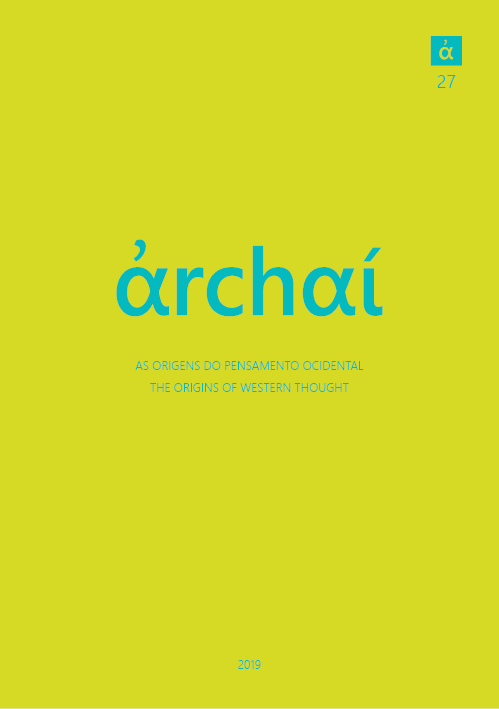Doubt and dogmatism in Cicero’s Academica
Keywords:
Cicero, epoche, doubt, skepticism, probabilismAbstract
The objective is to show the peculiar way in which Cicero’s philosophical thinking is original and distances itself from the main representatives of the New Academy: the Roman thinker does not practice epoche, nor does he assign any special role to it in his thought. Instead, Cicero introduces the concept of doubt to characterize his own way of thinking.
Downloads
References
GLUCKER, J. (1996). Cicero’s philosophical affiliations. In: DILLON, J. M.; LONG, A. A. (eds.). The Question of “eclecticism”. Studies in Later Greek Philosophy. Berkeley, University of California Press, p. 34-69.
HUNT, T. J. (1998). A Textual History of Cicero’s Academici Libri. Leiden, Brill.
LONG, A. A.; SEDLEY, D. (1987). The Hellenistic philosophers. 2 vols. Cambridge, The Press Syndicate of the University of Cambridge.
MILLER, W. (1928). Cicero. De officis. London, William Heineman.
NAYA, E. (2009). Renaissance Pyrrhonism: A Relative Phenomenon. In: PAGANINI, G; MAIA NETO, J. R. (eds.). Renaissance Scepticisms. Dordrecht, Springer, p.13-32.
PEABODY, A. P. (1886). Cicero. Tusculan Disputations. Boston, Little, Brown and Company.
REALE, G. (2011). Estoicismo, Ceticismo e Ecletismo. Trad. Marcelo Perine. São Paulo, Loyola.
SCHMITT, C. B. (1972). Cicero Scepticus. The Hague, Martinus Nijhoff.
SUTTON, E. W. (1942). Cicero. De Oratore. London, William Heineman.
RACKHAM, H. (2005). Cicero. De Natura Deorum et Academica. Cambridge, Harvard University Press.
Downloads
Published
How to Cite
Issue
Section
License
Given the public access policy of the journal, the use of the published texts is free, with the obligation of recognizing the original authorship and the first publication in this journal. The authors of the published contributions are entirely and exclusively responsible for their contents.
1. The authors authorize the publication of the article in this journal.
2. The authors guarantee that the contribution is original, and take full responsibility for its content in case of impugnation by third parties.
3. The authors guarantee that the contribution is not under evaluation in another journal.
4. The authors keep the copyright and convey to the journal the right of first publication, the work being licensed under a Creative Commons Attribution License-BY.
5. The authors are allowed and stimulated to publicize and distribute their work on-line after the publication in the journal.
6. The authors of the approved works authorize the journal to distribute their content, after publication, for reproduction in content indexes, virtual libraries and similars.
7. The editors reserve the right to make adjustments to the text and to adequate the article to the editorial rules of the journal.



